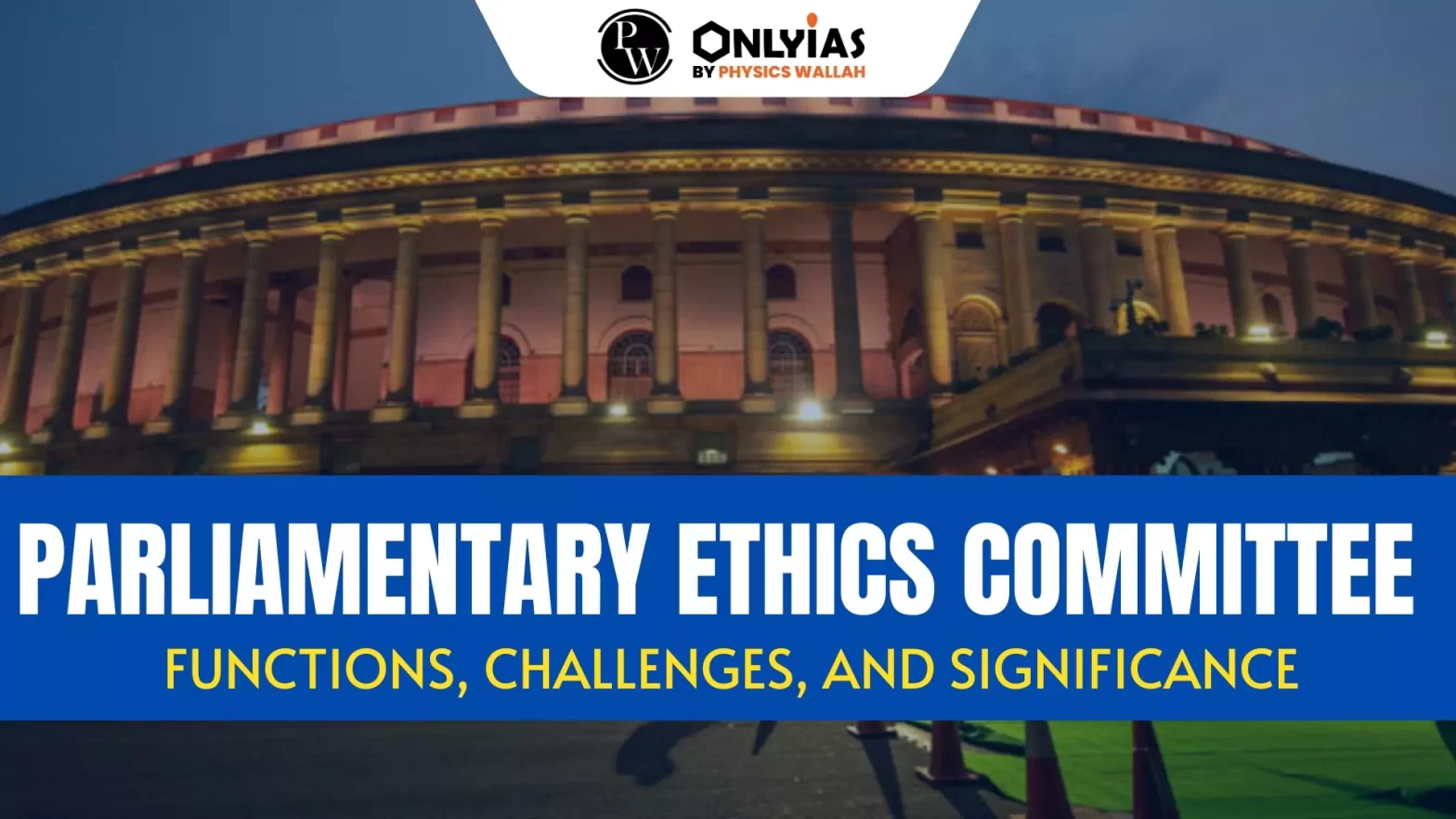Context: Recently, Lok Sabha Ethics Committee has asked Lok Sabha MP Mahua Moitra to appear before it .

| Criteria | Ethics Committee of Rajya Sabha | Ethics Committee of Lok Sabha |
| Composition and tenure |
|
|
| Functions |
|
|
| Powers |
|
|
| Current Chairman |
|
|
| Must Read | |
| NCERT Notes For UPSC | UPSC Daily Current Affairs |
| UPSC Blogs | UPSC Daily Editorials |
| Daily Current Affairs Quiz | Daily Main Answer Writing |
| UPSC Mains Previous Year Papers | UPSC Test Series 2024 |
A “cash-for-query” complaint is an accusation that someone took money in exchange for asking questions in Parliament.
Rajya Sabha: The Ethics committee was established in Rajya Sabha in 1997 Lok Sabha: The Ethics committee was established in 2000 by the late Speaker G M C Balayog
Rajya Sabha: The Ethics Committee consists of ten members in Rajya Sabha Lok Sabha: The Ethics Committee consists of fifteen members in Lok Sabha

<div class="new-fform">
</div>